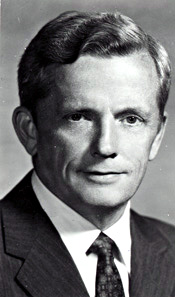
Irredentism is one state's desire to annex the territory of another state. This desire can be motivated by ethnic reasons because the population of the territory is ethnically similar to the population of the parent state. Historical reasons may also be responsible, i.e., that the territory previously formed part of the parent state. However, difficulties in applying the concept to concrete cases have given rise to academic debates about its precise definition. Disagreements concern whether either or both ethnic and historical reasons have to be present and whether non-state actors can also engage in irredentism. A further dispute is whether attempts to absorb a full neighboring state are also included. There are various types of irredentism. For typical forms of irredentism, the parent state already exists before the territorial conflict with a neighboring state arises. However, there are also forms of irredentism in which the parent state is newly created by uniting an ethnic group spread across several countries. Another distinction concerns whether the country to which the disputed territory currently belongs is a regular state, a former colony, or a collapsed state.
The Cuban–American lobby are various groups of Cuban exiles in the United States and their descendants who have historically influenced the United States' policy toward Cuba. In general usage, this refers to anti-Castro groups.

Paul Augustus Findley was an American writer and politician. He served as United States Representative from Illinois, representing its 20th District. A Republican, he was first elected in 1960. A moderate Republican for most of his long political career, Findley was a supporter of civil rights and an early opponent of the U.S. war in Vietnam. He co-authored the War Powers Act in 1973, which is supposed to limit the ability of the president to go to war without Congressional authorization. Findley lost his seat in 1982 to current United States Senator Dick Durbin. He was a cofounder of the Council for the National Interest, a Washington, D.C. advocacy group, and was a vocal critic of American policy towards Israel.

The Arab American Institute (AAI) is a non-profit membership organization that advocates for the interests of Arab-Americans. Founded in 1985 by James Zogby, the brother of pollster John Zogby, the organization is based in Washington, D.C.
The Canada-Israel Committee (CIC) was the official representative of the organized Canadian Jewish community on matters pertaining to Canada–Israel relations.
The Arab lobby in the United States is a collection of formal and informal groups and professional lobbyists in the United States paid directly by Gulf Arab states and private donors on behalf of the Arab states.

The Israel lobby are individuals and groups seeking to influence the United States government to better serve Israel's interests. The largest pro-Israel lobbying group is Christians United for Israel with over seven million members. The American Israel Public Affairs Committee (AIPAC) is a leading organization within the lobby, speaking on behalf of a coalition of pro-Israel American Jewish groups.
The Jewish lobby are individuals and groups predominantly in the Jewish diaspora that advocate for the interests of Jews and Jewish values. The lobby references the involvement and influence of Jews in politics and the political process, and includes organized groups such as the American Jewish Committee, the American Israel Public Affairs Committee, B'nai B'rith, and the Anti-Defamation League.

Americanization is the process of an immigrant to the United States becoming a person who shares American culture, values, beliefs, and customs by assimilating into the American nation. This process typically involves learning the American English language and adjusting to American culture, values, and customs. It can be considered another form of, or an American subset of Anglicization.
An ethnic interest group or ethnic lobby, according to Thomas Ambrosio, is an advocacy group established along cultural, ethnic, religious or racial lines by an ethnic group for the purposes of directly or indirectly influencing the foreign policy of their resident country in support of the homeland and/or ethnic kin abroad with which they identify.
A foreign policy interest group, according to Thomas Ambrosio, is a domestic advocacy group which seeks to directly or indirectly influence their government's foreign policy.

Thomas Ambrosio is a professor of political science in the Criminal Justice and Political Science Department at North Dakota State University. He teaches courses in international relations and international law.
Diaspora politics in the United States is the political behavior of transnational diasporas of ethnic groups, their relationship with their ethnic homelands and their host states, as well as their role in inter-ethnic relations. This article describes case studies and theories of political scientists studying diaspora politics within the specific context of the United States. The general study of diaspora politics is part of the broader field of diaspora studies.
Diaspora politics is the political behavior of transnational ethnic diasporas, their relationship with their ethnic homelands and their host states, and their prominent role in ethnic conflicts. The study of diaspora politics is part of the broader field of diaspora studies.

United States foreign policy in the Middle East has its roots in the early 19th-century Tripolitan War that occurred shortly after the 1776 establishment of the United States as an independent sovereign state, but became much more expansive in the aftermath of World War II. With the goal of preventing the Soviet Union from gaining influence in the region during the Cold War, American foreign policy saw the deliverance of extensive support in various forms to anti-communist and anti-Soviet regimes; among the top priorities for the U.S. with regards to this goal was its support for the State of Israel against its Soviet-backed neighbouring Arab countries during the peak of the Arab–Israeli conflict. The U.S. also came to replace the United Kingdom as the main security patron for Saudi Arabia as well as the other Arab states of the Persian Gulf in the 1960s and 1970s in order to ensure, among other goals, a stable flow of oil from the Persian Gulf. As of 2023, the U.S. has diplomatic relations with every country in the Middle East except for Iran, with whom relations were severed after the 1979 Islamic Revolution, and Syria, with whom relations were suspended in 2012 following the outbreak of the Syrian Civil War.
The Irish National Caucus (INC) is an Irish-American lobby group. It was founded by Father Sean Gabriel McManus on February 6, 1974, at a meeting of the Ancient Order of Hibernians. The lobby group was formed to counterbalance British influences in the United States Congress and government, at a time when Northern Ireland was engulfed in violence. The situation was complicated, as Britain and the USA were allied in NATO during the Cold War against the Soviet Union, which collaborated with some Irish republican elements.

The anti-Israel lobby is a term used by some to refer to organizations with the purpose of opposing relations between the United States and Israel.
The Armenian American lobby is the diverse coalition of those who, as individuals and as groups, seek to influence the United States foreign policy in support of Armenia, Armenians or Armenian policies. One of its primary goals is for the United States to recognize the Armenian genocide, but the Turkish lobby have, until recently, successfully lobbied against this.
The Ireland lobby are groups and individuals who influence United States policy in both foreign and domestic affairs in support of causes related to Ireland and Irish American interests.







